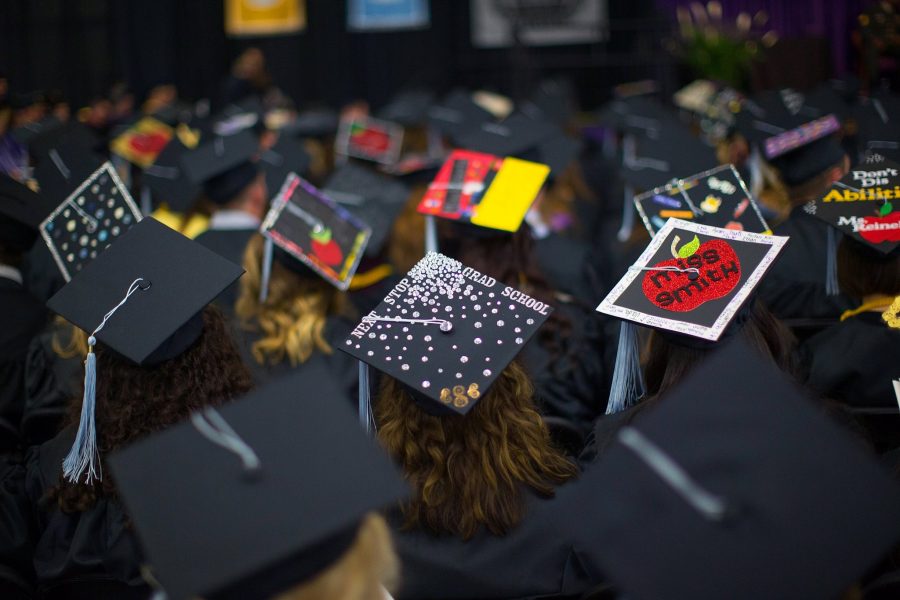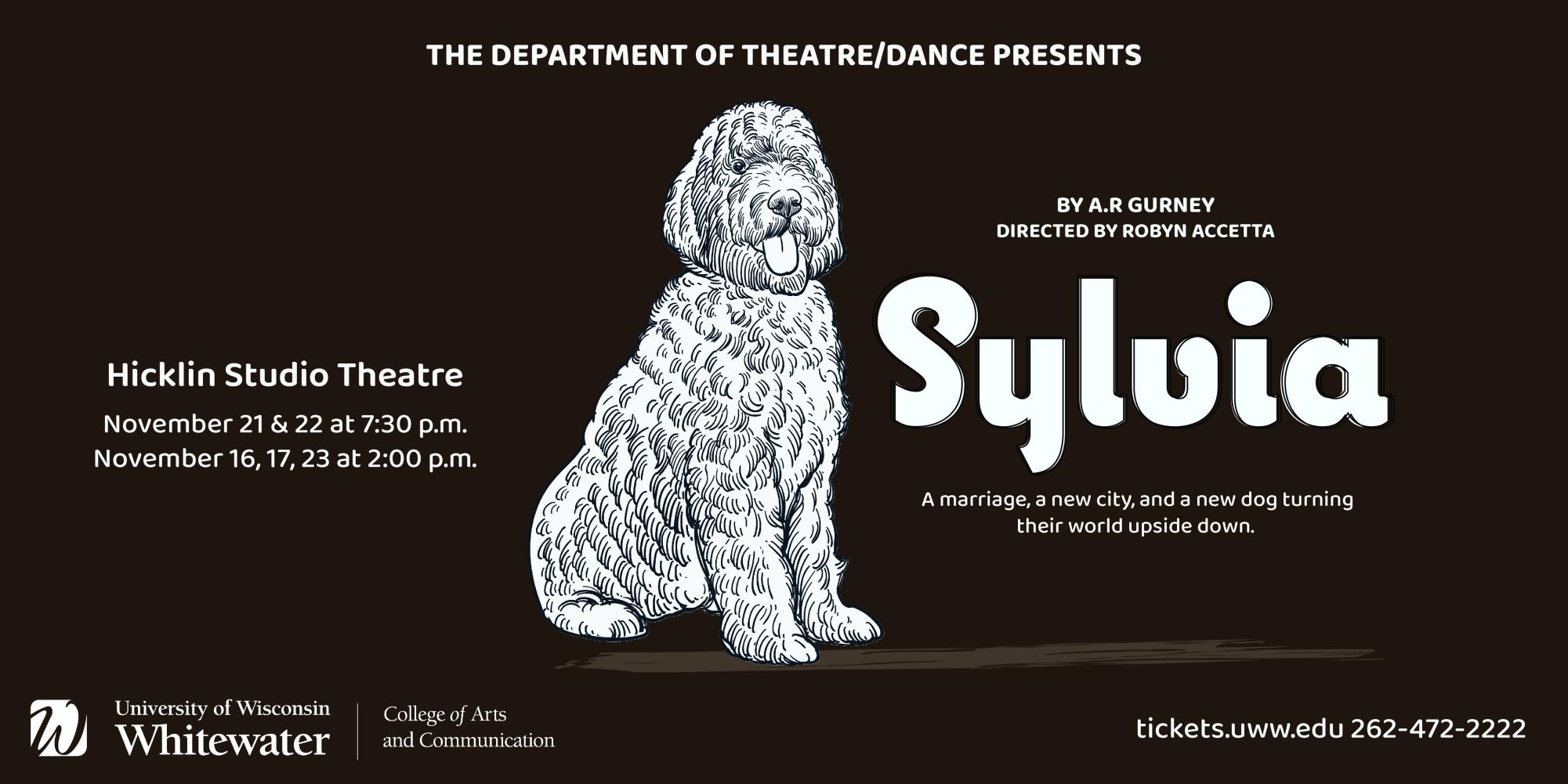Commencement re-structured due to growing participation
Students’ decorative graduation caps sit on display during the Fall 2016 commencement ceremony. Changes in this year’s commencement activities are due to the large crowds from students and families.
February 28, 2017
The University of Wisconsin-Whitewater is having growing pains when it comes to spring commencement.
With recent spring undergraduate ceremonies featuring over 1,400 students during a 3.5 hour affair, the event is undergoing change for this semester’s graduates.
Spring commencement has been split into two separate ceremonies in past years between undergraduate and graduate degrees; however, the ceremonies at the end of this semester will be divided between the Arts and Communication and Business and Economics colleges in the morning, and the Letters and Sciences and Education and Professional Studies in the afternoon.
Jodi Hare-Paynter, coordinator of commencement ceremonies, says changing the structure of the ceremonies will lead to a better graduation experience for students.
“We realize that this is a very important date in student’s lives,” Hare-Paynter said. “We want to let them have as many people there as possible … it’s very hard to choose five people that can have the tickets. Allowing at least two more I think would make graduating students happy.”
Well, as many guests possible as fire code regulations will allow, she added.
Part of the need for a change in ceremony structure is a growing student body and a growing interest in undergraduates participating in commencement.
Higher participation made the ceremonies more heavily populated, Hare-Paynter said.
“It was a good problem to have,” she said.
With the ceremonies split between the colleges of study, students will be able to invite seven guests in comparison to five in past ceremonies.
In addition to providing more flexibility for guest attendance, Hare-Paynter said the other major objective in changing the ceremony structure is to bring the length of the ceremony down. Previously the ceremony has been 3.5 hours. The goal is to bring it back down to a little over two hours, closer to the length of the fall semester commencement ceremonies.
With restructuring of the ceremonies, students who earn associate degrees will know be able to participate in the afternoon graduation festivities.
Hare-Paynter says she doesn’t see a lot of drawbacks to changing the structure of the commencement ceremonies, but acknowledges that it will take some getting used to.
The process for selecting the speaker for graduation wasn’t prompted by the change in ceremony structure, but had to adapt to the registrar’s office’s plans.
It was a process that Hare-Paynter said they left to Marketing and Media Relations and the chancellor, but said it’s exciting to see more students get to participate and represent their field of study.
“It’ll be really nice to see more than one person getting the opportunity and having it be college-specific,” she said. “I just think it’s a great opportunity for students.”
Speaker process change
The commencement ceremonies aren’t the only aspect of the graduation process undergoing changes.
Presenting to Chancellor Beverly Kopper and her cabinet members induces “a lot of nerves,” junior Ryan Marshick said. Presenting with two other members of his student organization Empower on a proposal to reform the processes in which the speakers at commencement are chosen.
“Presenting to the chancellor is a big deal,” Marshick said. “Not many people get that opportunity, and this was something that was close to me because I’ve been a part of it and wanted it to succeed. I wanted every detail to be perfect.
“It’s not just the chancellor, it’s the chancellor’s cabinet,” he said. “I get intimidated easily, so having the chancellor right in front of me [made] me want to keep practicing.”
The proposal was approved by Kopper the same day it was presented.
The process was revamped as the Student Foundation, who had previously selected the commencement speaker, declined in participation and was absorbed by UW-W Empower.
With absorbing the organization, Marshick said, they also absorbed the responsibilities of selecting the commencement speaker.
The proposal presentation was only ten days into the Spring 2017 semester, prompting much of the work to be done over winter break. Pulling from the commencement speaker selections from 15 other universities close to the size of UW-W, Marshick and his fellow researchers put together a proposal that allowed more engagement at the college level, with each of the deans nominating up to three students for consideration with a letter of recommendation.
Representatives from each college and from multiple student organizations will be present at the tryouts to get “a more inclusive view,” Marshick said.
Students can also apply for the commencement speaker role without a nomination from the dean of their college. Regardless of a dean nomination, speeches are due online at uww.edu/commencement/student-speaker-competition.










